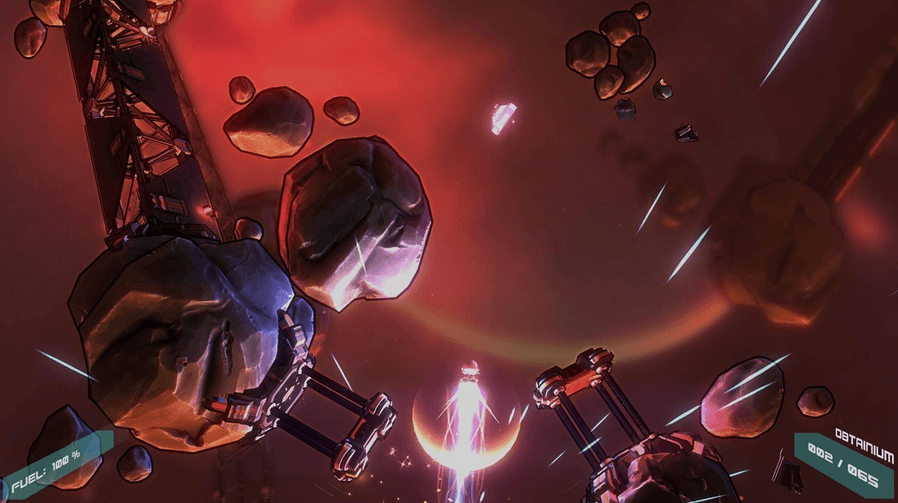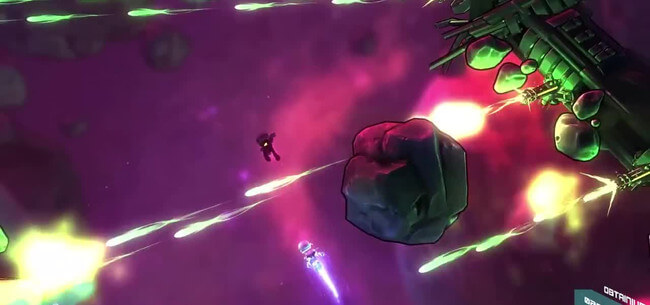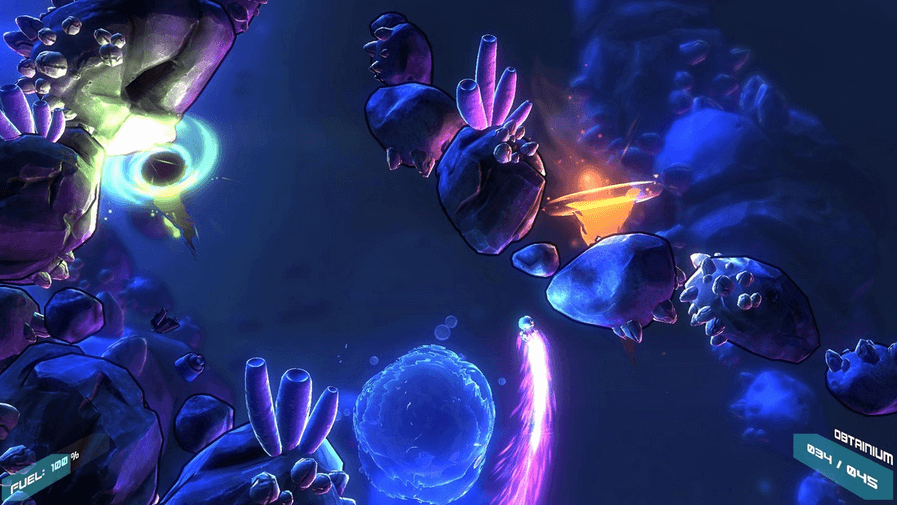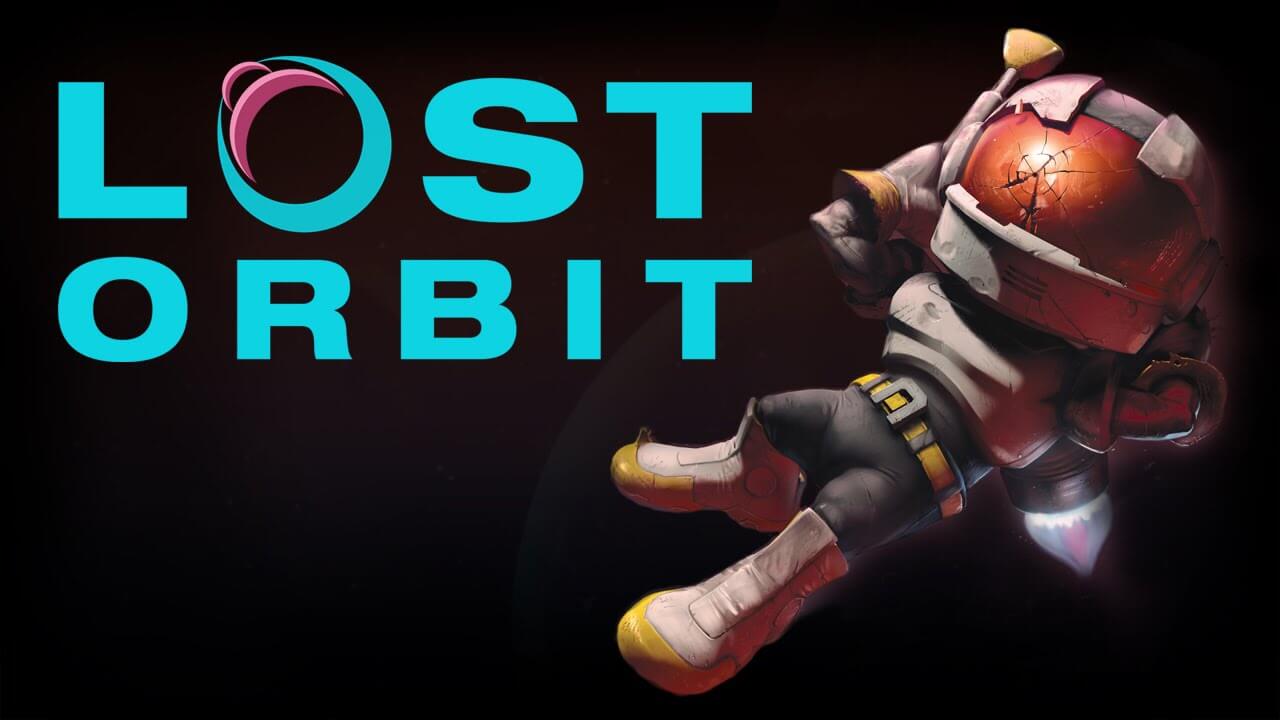Title: Lost Orbit
Version Tested: PS4
Available On: PC, PS4
Developer: PixelNAUTS
Publisher: PixelNAUTS
Genre: Action
Official Site: Lost Orbit
Release Date: May 12, 2015
Where to Buy: Steam, PSN
Lost Orbit is a beautiful and difficult action game that appears to be an endless runner on its surface, but quickly becomes much more. As Harrison, you need to find your way home as you zip across galaxies as quick as possible, while avoiding obstacles and dangers in your way.
[embedyt] https://www.youtube.com/watch?v=4VUnF3cErFQ[/embedyt]
[gap height=”15″]
In a world littered with an endless (no pun intended) amount of endless runner games, especially on mobile devices, at first it may seem like Lost Orbit is just another one on the list. I’m very happy to say that this little indie game is much more. Created by a small team, PixelNAUTS also had a hand in creating Contrast a couple of years back. It’s easy to see the love and care that was put into the game, and despite a couple of small miscues along the way, Lost Orbit is another shining example of how great the indie scene can be.
After all hope seems to be lost, Harrison must do all he can to return home with no ship, supplies, or help. As the game’s hero, you drift your way through the galaxy, gazing at your surroundings. At first, the player is presented with what seems to be a pretty tame, calm, and easy-going adventure through space. It doesn’t take long for things to ramp up, just a couple of levels in you’re blasting through as fast as you can. All the while a narrator gives you a sense of who Harrison is, and how he’s feeling, a nice touch to the otherwise mute protagonist.

While navigating through these worlds, Harrison must collect Obtanium, which acts as the in-game currency to upgrade abilities. Each and every level is also timed, and uploaded to a leaderboard system. I’m not a huge fan of constantly having a timer running in the background, but here it is essential because the quicker you are, the higher the rank and Obtanium award at the end. Along with timing, the player is also rated on how many times they die in each level and I quickly realized staying alive isn’t that simple.
Lost Orbit is a tough game, no question about it, and it’s not just the running clock that creates tension and difficulty. The four galaxies and solar systems you pass through contain 10-12 levels that gradually get more and more challenging. What PixelNAUTS excels at is introducing not only a variety of locations to marvel at but a variety of obstacles to go along with it, changing the way you approach each and every stage. Whether it’s asteroid fields, lasers, or aliens, each time these are thrown at Harrison it changes the way you play and forces you to think long and hard about what upgrades to unlock first.

The upgrade system is a little thin, but it was still essential in being able to navigate through space, and navigate quickly. Speed is a big part of Lost Orbit as well, and just like new obstacles being introduced, new ways to blast past them are introduced as well. While controlling Harrison is tight, but also fluid, making contact with small planets for example, will give him bursts of speed necessary to survive and make to the end of each level in good time. There were numerous times where the speed boosts I was getting were so fast, that I could barely see in front of me or navigate past even the simplest obstacle. That isn’t a bad though, the game presents you with options to quickly zip through space but it’s up to the player to use that speed responsibly.
I found myself really enjoying the slower moments of the game as well. Each galaxy or solar system has its own interlude-esc level, one that has very little obstacles, and acts as the main source of story-driven dialogue. I cannot stress enough how great the game looks and these levels give you a chance to really take that all in and listen to some very clever dialogue as well. These are the moments that add to the great atmosphere the game creates. My biggest gripe with the game is how it does such a great job of grabbing you in these times of calm, it struck me as strange and off-putting with other design choices the developers took.
They may be small issues, and maybe it’s just me, but the first time I died I was surprised at how it looked and sounded. Due to the nature of the game, dying happens quite frequently. Unfortunately, I was taken right out of the experience when I saw a splatter of blood come across the screen and the (fantastic) music came to a sudden halt. It may seem like something minor, but for some reason it struck me as an odd design choice.

- Gameplay: Tight controls and 40 unique levels keep things interesting, fast, and fresh.
- Graphics: Looks fantastic. Despite the intense gameplay, the visuals are light and friendly for the most part.
- Sound: The narration by Harrison’s friend is well-written and the soundtrack is really great.
- Presentation: Overall a great looking and sounding game. The level design is well thought out and forces the player to make quick decisions while admiring the solar systems around you.
[review]







